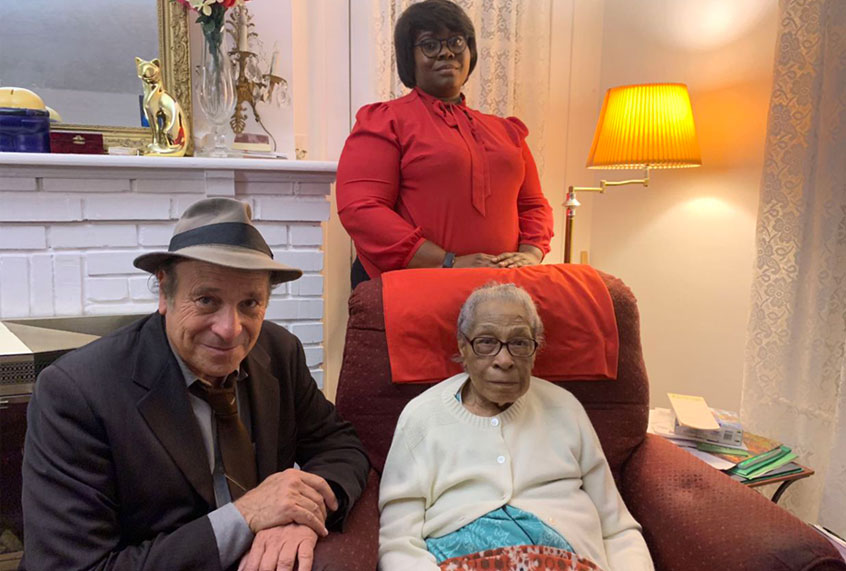It’s one thing to read about the 340,134 Georgia voters who were wrongly purged from the rolls. That is, to be sure, an eye-popping number — if even a quarter of those voters had gone to the polls and been permitted to vote on Election Day, the odds are overwhelming that Democrat Stacey Abrams would have at least been able to force a runoff against Republican Brian Kemp, if not defeat him outright. But as with all statistics, the abstract number can obscure the human toll.
When Salon spoke to journalist Greg Palast, he described his experiences attempting to learn the stories ordinary Georgia voters, as well as how Salon’s exclusive report last month on the mass voter purges helped the Abrams campaign win a crucial court case.
“Christina Jordan, 92 years old,” Palast told Salon by email. “On Election Day, the stately Ms. Jordan was dressed to the nines, appropriate to celebrate her 50th year of voting at the same poll in Atlanta. Except they didn’t let her vote. Purged, and records erased. She said she’d never had trouble, not since she first voted in the year her cousin, Martin Luther King Jr., was murdered. Her granddaughter, Jessica Lawrence, was crying inconsolable tears.
“Election Night, my crew and I spent time with her and her granddaughter. Miss Christine (that’s how they speak in Georgia) talked about the family reunions with the Kings at her house. Never talked politics, just church gossip and family. She misses choir practice at Zion Hill Baptist. She sang to us, ‘Jesus loves me.’ And she sang, ‘We shall overcome.'”
Palast told Salon that Jordan is prepared to sue Kemp, who as Georgia secretary of state implemented the policies that purged hundreds of thousands of voters like Jordan, “if someone will help me walk to the courthouse.” He also described the plight of Ashlee Jones, a woman of African American, Mexican and white heritage who accidentally registered twice on the website set up by Kemp to help people vote.
“She only got a note to contact the county registrar. She did, but her name remained missing,” Palast explained. “Worse, she was at first denied a provisional ballot — a violation of federal law rife throughout Georgia. I had to intervene, explain to the poll worker that about federal law. That failed. I called lawyers and brought in the three national camera crews I was working with (Salon, BET, Color of Change), causing enough pressure to get Ashlee her provisional ballot. But she told me they were adamant: ‘It would not be counted.’ God bless America.”
If there is any hope here, it is that proactive measures can help in the long process of restoring democracy.
“Sometimes investigative reporting accomplishes more than lining bird cages,” Palast wrote. “Federal District Court Judge Amy Totenberg ruled that the count must continue through Friday and that more provisional ballots must be counted because of voters finding they’d been purged.
“In the key fact statement which won the judgment, the Brennan Center and its client Common Cause cited the list of purged Georgia voters which the Palast Fund had obtained through litigation. It was a Salon exclusive that busted out the news of the purge list … which was used by Common Cause and other activists to match voters given provisional ballots with the big voter purge by Brian Kemp. It was through Salon that the plaintiffs found that Brian Kemp had erased their registrations — and that led the judge to rule to extend the count and count timing for provisional ballots.”
Palast also described how Black Lives Matter Atlanta attempted to draw attention to Kemp’s voter purges through a unique form of protest.
“Readers of these Salon articles will enjoy this photo of Black Lives Matter Atlanta holding 6 balloons spelling out the number 340,134 — the number of voters which were purged by Brian Kemp wrongfully,” Palast explained. “The state police had told Black Lives they couldn’t demonstrate in front of the state capitol, so the group chose to simply carry their very balloons. The cops were not amused. Including those who carried the message inside the capitol, 12 were arrested, including the organizer who took this photo, Mary Hooks, who is also co-director of Southerners on New Ground (SONG). I don’t know what happened to the balloons. There will be more [demonstrations] by many groups … and unfortunately, more arrests. It’s looking more like 1963 than 2018.”
Palast concluded, “New Georgia Project, the NAACP and others are preparing demonstrations and legal actions, and the Abrams campaign continues its demand to count all votes. If all votes (about 28,000 provisionals and approximately 5,000 disqualified absentee ballots) are counted, Abrams, all sides agree, would win a [runoff] race in December. It’s strange we are still talking about whether votes should be counted.”


